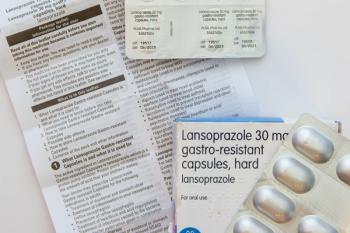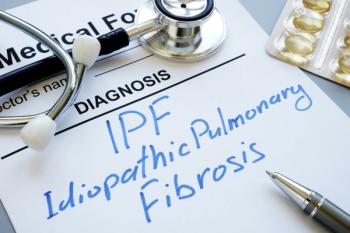
Whether they are collaborating with other health care professionals, helping with medication adherence, or educating patients, pharmacists have a crucial role in every setting.

Whether they are collaborating with other health care professionals, helping with medication adherence, or educating patients, pharmacists have a crucial role in every setting.

Ron Lanton outlines enforcement uncertainty and downstream effects on biosimilars, specialty drugs, and pharmacy supply chains under most favored nation pricing proposals.

Research reveals that statins and metformin enhance survival rates in early-stage triple-negative breast cancer, offering hope for affordable treatment options.

GLP-1 receptor agonists show potential as innovative treatments for alcohol and substance use disorders, addressing critical public health needs.

Primary care clinics enhance diabetes management by implementing continuous glucose monitors, improving access to essential care for patients nationwide.

The move emphasizes the need for vigilant monitoring.

Inhaled insulin Afrezza offers a rapid-acting alternative for children with type 1 diabetes, enhancing blood glucose control and patient satisfaction.

Invasive lobular carcinoma poses unique detection and treatment challenges, highlighting the urgent need for targeted research and improved survival strategies.

The pharmaceutical giant will reportedly lower its drug prices to align with most-favored-nation status.

The FDA approves Eydenzelt, a biosimilar for retinal diseases, enhancing treatment options for diabetic macular edema and age-related macular degeneration.

Combining tramadol with CYP2D6-inhibiting antidepressants raises seizure risk in older adults, highlighting the need for careful medication management.

Repetitive DNA mimics pathogens, influencing cancer immunity and immunotherapy.

Research reveals that poor glycemic control in adolescents with type 1 diabetes significantly increases the risk of developing neuropathy in adulthood.

Hallucinatory affects associated with psychedelic drugs and Lewy body diseases may have some commonalities.

GLP-1 receptor agonists significantly influence FDG-PET-CT scan interpretations, potentially leading to misdiagnosis in cancer detection.

As one of the most prescribed medications worldwide, proton pump inhibitor use could serve as a bulwark against severe outcomes in hospitalized adults with COVID-19.

Niraparib combined with standard therapy significantly improves progression-free survival in men with HRR-deficient metastatic castration-sensitive prostate cancer.

Researchers explore continuous glucose monitors (CGMs) for early detection of insulin issues, aiming to prevent diabetes progression and improve screening methods.

Medicaid expansion enhances 5-year cancer survival rates in rural and high-poverty areas, highlighting the importance of financial support for better health outcomes.

Frail patients with multiple myeloma (MM) can safely reduce dexamethasone use, enhancing treatment outcomes without increasing infection risks.

Cagrilintide shows significant weight loss in adults with obesity, marking a breakthrough in obesity treatment with promising phase 3 trial results.

The FDA approves nerandomilast, the first new treatment for idiopathic pulmonary fibrosis in over a decade, offering renewed hope for patients.


BMS-986446 shows promise as a fast-tracked therapy for early Alzheimer disease, targeting tau protein to alter disease progression.

Student pharmacists should use practical tips to responsibly use artificial intelligence tools for studying, clinical simulations, exam preparation, and time management while ensuring ethical and effective usage.

Matthew D. Clark, PharmD, highlights a pharmacist-led program that improved opioid safety in cancer care despite regulatory exemptions.

MD Anderson's opioid stewardship program enhances patient safety and care by monitoring opioid use, addressing discrepancies, and fostering multidisciplinary collaboration in cancer treatment.

Recent findings reveal that stereotactic radiation therapy (SABR) offers long-term survival outcomes comparable to surgery in patients with early non–small cell lung cancer (NSCLC).

Gene therapy offers transformative potential in treating diseases like sickle cell and leukemia, highlighting pharmacists' crucial roles.

New research links oral bacteria and fungi to pancreatic cancer risk, suggesting oral microbiota as potential noninvasive biomarkers for early detection.